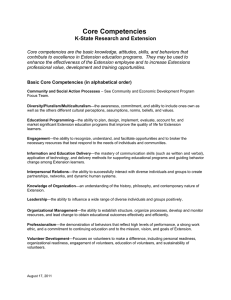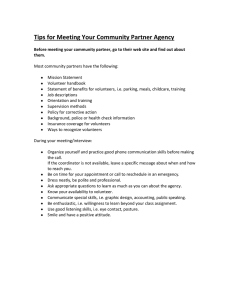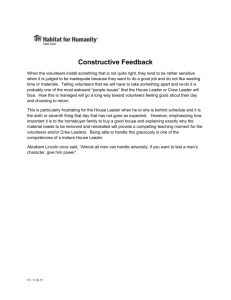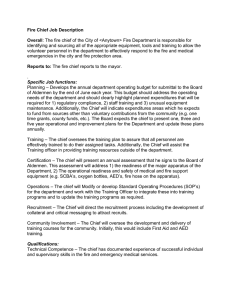Core competencies are the basic knowledge, attitudes, skills, and behaviors that... Core Competencies of Extension Professionals
advertisement
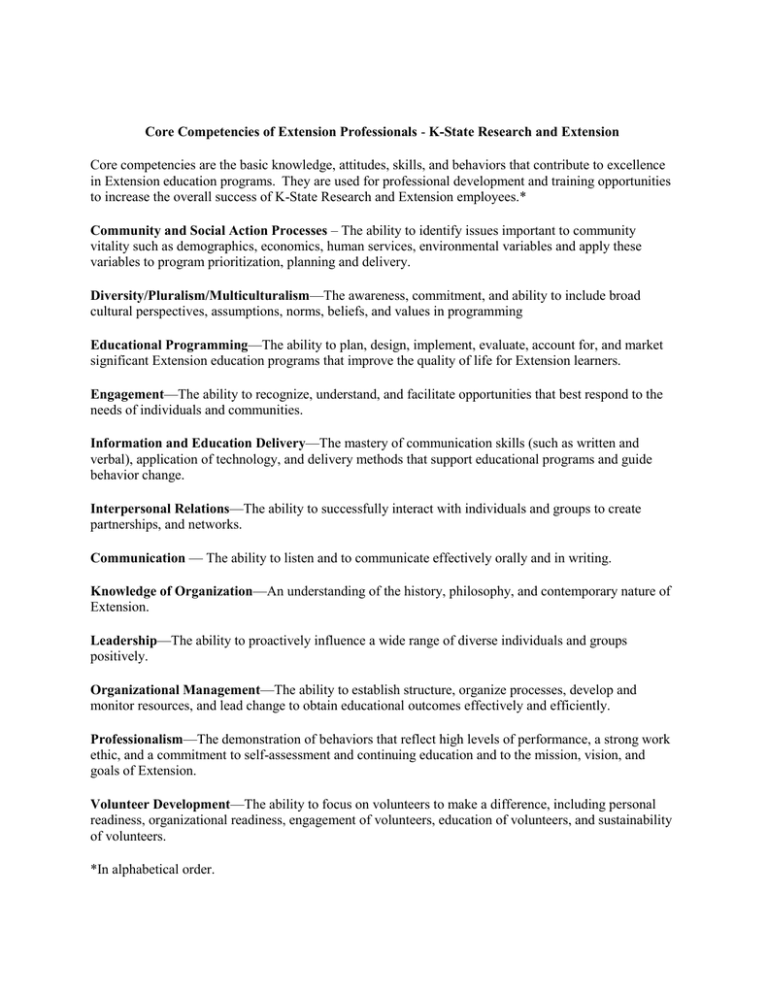
Core Competencies of Extension Professionals - K-State Research and Extension Core competencies are the basic knowledge, attitudes, skills, and behaviors that contribute to excellence in Extension education programs. They are used for professional development and training opportunities to increase the overall success of K-State Research and Extension employees.* Community and Social Action Processes – The ability to identify issues important to community vitality such as demographics, economics, human services, environmental variables and apply these variables to program prioritization, planning and delivery. Diversity/Pluralism/Multiculturalism—The awareness, commitment, and ability to include broad cultural perspectives, assumptions, norms, beliefs, and values in programming Educational Programming—The ability to plan, design, implement, evaluate, account for, and market significant Extension education programs that improve the quality of life for Extension learners. Engagement—The ability to recognize, understand, and facilitate opportunities that best respond to the needs of individuals and communities. Information and Education Delivery—The mastery of communication skills (such as written and verbal), application of technology, and delivery methods that support educational programs and guide behavior change. Interpersonal Relations—The ability to successfully interact with individuals and groups to create partnerships, and networks. Communication — The ability to listen and to communicate effectively orally and in writing. Knowledge of Organization—An understanding of the history, philosophy, and contemporary nature of Extension. Leadership—The ability to proactively influence a wide range of diverse individuals and groups positively. Organizational Management—The ability to establish structure, organize processes, develop and monitor resources, and lead change to obtain educational outcomes effectively and efficiently. Professionalism—The demonstration of behaviors that reflect high levels of performance, a strong work ethic, and a commitment to self-assessment and continuing education and to the mission, vision, and goals of Extension. Volunteer Development—The ability to focus on volunteers to make a difference, including personal readiness, organizational readiness, engagement of volunteers, education of volunteers, and sustainability of volunteers. *In alphabetical order.
